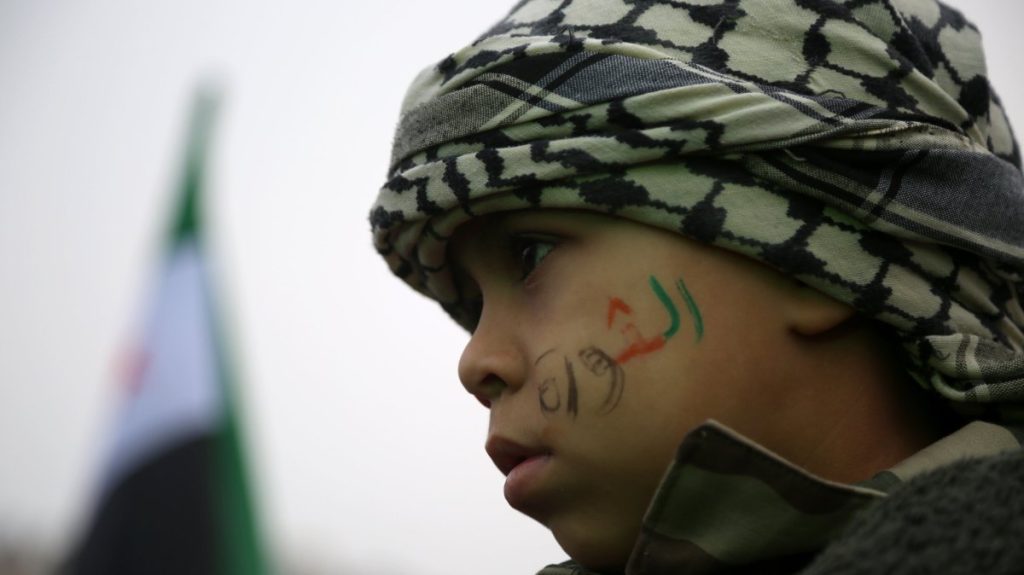Sitting in a cozy flat in Gaziantep, the Alhamdan family celebrated a free Syria. Everyone thanked God and chanted in praise. Hearts beat with joy and everyone sang and danced in happiness. The decades-long brutal, inhumane and repugnant Assad regime had finally fallen. On, the day the Assad family’s statues toppled across Syria, a new dawn of optimism rose. Of course, none of the Syrians will ever forget the brutalities inflicted upon them by the regime leaders. But now they can take a fresh breath. It’s time to bury the past and start striving for the future.
The world has watched thousands of Syrians like the Alhamdan family dancing on the streets and waving their country’s new flags on TV screens and on social media sites. Their celebration lasted for days without any consideration of anything else. Yet, soon, the noise of the debate between reason and heart arose; it was time to return to Syria and therefore, silence fell upon everyone.
How would we return, in what language would we speak and how would our children continue their studies? It had been 13 years of misery and hardship, during which Syrians endured the torments of exile in hopes of escaping the regime and securing a better future for their children. Throughout this exile, young people adopted the customs and languages of their host countries. Few managed to retain some Syrian words for the purpose of communication, not for learning; they could speak but not read or write. How will they continue their studies? One must also consider the cultural shock, as they have spent over a decade trying to adapt to new environments.
The Syrians enter 2025 with hopes for peace and prosperity in their country. While optimism is a valued thinking, we should all be realistic.
Question of returning home
Syria’s new regime needs to exercise brilliance in diplomacy, democracy, economic reconstruction, search for alternative energy resources, ensure a secure Syria and set an exemplary governance that restores the oppressed people’s faith in justice and equal opportunities.
And the major challenge behind all these for the new regime in Damascus is to convince Syrians residing abroad to come and rebuild their homeland. Currently, approximately 6 million Syrian refugees are living abroad and half of them are living in Türkiye, Lebanon, Germany, Jordan and Iraq. Worryingly, a U.N. report reveals that “at least 7.4 million Syrians remain internally displaced.” Convincing these people would be a quite demanding project because those who lived and many born in foreign countries have been disengaged with the mainstream Syrian society. The Syrian diaspora’s expectations of governance are plausible because many have experienced the Western way of life and hence, they might not compromise on fundamental human rights and freedoms.
United Nations Special Envoy Geir Pedersen expects Syria’s new rulers “to respect the rights of all the country’s diverse religious and ethnic groups.” The new rulers appointed Maysaa Sabrine as the first woman to lead its central bank and guarantee all religious groups’ rights. Yet, that is far from enough. We must not forget that the country is exhausted and burdened, still in need of a period of peace and organization, which may take a year or two.
Turkish journalist Aslı Aydıntaşbaş predicts, “In the end, Syria will not be worse than what it was.” Certainly, the Syrian diaspora overseas will uplift the “devastated economy.”
Syrian diaspora and role of Türkiye
Today, what helps Syrians return to their homeland is not only reconstruction but also the continuation of an intellectual renaissance. This involves having schools and universities in Syria that teach in multiple languages and are recognized by both the Syrian government and the governments of the respective countries.
For instance, a school and university in a Syrian province that teaches in both Arabic and Turkish and is accredited by the Turkish government could achieve a lot. Another example could be setting up an industrial zone close to the Turkish border connecting it to Turkish universities to produce professional youngsters. But will countries accept this idea? To what extent will it be implemented and accepted by Syrians who never left Syria?
The clock is ticking and so is the heartbeat. Now, all eyes are focused on President-elect Donald Trump, who promised peace in Ukraine and in the Middle East. Syrians hope that their country’s future will provide a healthy environment for its youth, who are waiting to return home.


